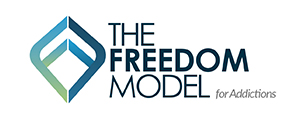Baldwin Research:
Addiction & Treatment
Research
Are Support Meetings Necessary for Long Term Sobriety?
Since the 1930s the prevailing knowledge has been that if persons with drug or alcohol problems are to remain sober and drug free, they must attend support meetings daily for the rest of their lives. In 1989, when BRI began its social research, this was the accepted premise. By then it was already known that the most popular of these meetings, Alcoholics Anonymous, was woefully unsuccessful. Nevertheless, because Alcoholics Anonymous was far and away the most well-known program in 1989 for drug and alcohol rehabilitation, BRI selected the Alcoholics Anonymous program as the foundation for its research.
The basis of Alcoholics Anonymous' limited success was set forth in Chapter 7 (page 89) of its book entitled Alcoholics Anonymous:
"Practical experience shows that nothing will so much insure [sic] immunity from drinking as intensive work with other alcoholics. It works when other activities fail. This is our twelfth suggestion: carry this message to other alcoholics! You can help when no one else can."
According to this, in order to stay sober and drug free within the program of Alcoholics Anonymous, every member must become an evangelist for Alcoholics Anonymous. Further and based on Alcoholics Anonymous' dogma, it claims that members of Alcoholics Anonymous can help an active substance user "when no one else can," even though there has never been a study to substantiate such a claim. Furthermore, there is perhaps no other assertion by Alcoholics Anonymous that more influenced the drug and alcohol rehabilitation industry. The entire drug and alcohol rehabilitation industry was started by Alcoholics Anonymous members and was populated by Alcoholics Anonymous members as drug and alcohol therapists, counselors, owners, founders and managers of rehabilitation programs, and federal and state regulatory agencies. All these hundreds of thousands of Alcoholics Anonymous members got jobs based on the absurd notion that they "can help when no one else can." Nevertheless, this was the norm in 1989 when the predecessors of BRI began their research, and to clarify, the founders of BRI were, at that time, considered "recovered alcoholics." Further, even though BRI founders gave some credence to the notion that a "recovered alcoholic" could help the still active substance user, the two BRI founders had many fundamental conflicts with Alcoholics Anonymous' dogma.
In the book entitled Alcoholics Anonymous in Chapter 3 on page 33 the authors boldly state "Once an alcoholic, always an alcoholic." Then again in Chapter 6 on page 85 the authors caution, "We are not cured of alcoholism. What we really have is a daily reprieve…" The conflict that these statements invoke is irreconcilable with the title page of the book Alcoholics Anonymous. On the title page, it proclaims that the book is about, "...How Many Thousands of Men and Women Have Recovered from Alcoholism." And again in Chapter 2 entitled There Is A Solution, it proffers,
"We, of ALCOHOLICS ANONYMOUS, know thousands of men and women who were once just as hopeless as Bill. [Bill refers to William Wilson, a self-proclaimed founder of Alcoholics Anonymous.] Nearly all have recovered. They have solved the drink problem."
Consider that the word "recovered" means "To regain a normal or usual condition, as of health." And the word "cured" means "Restoration of health; recovery from disease." And "To restore to health" or to effect "a recovery from: cure a cold." [Emphasis added.] Thus and as used in the book Alcoholics Anonymous, the words, "cured" and "recovered," have the same meaning. Ergo, if one is recovered, one is, in fact, cured. And conversely, if one is not cured, then one is not recovered.
This is the kind of double-speak and hypocrisy that BRI was founded to fight, and despite all our successes, it is a fight we still engage in today.


